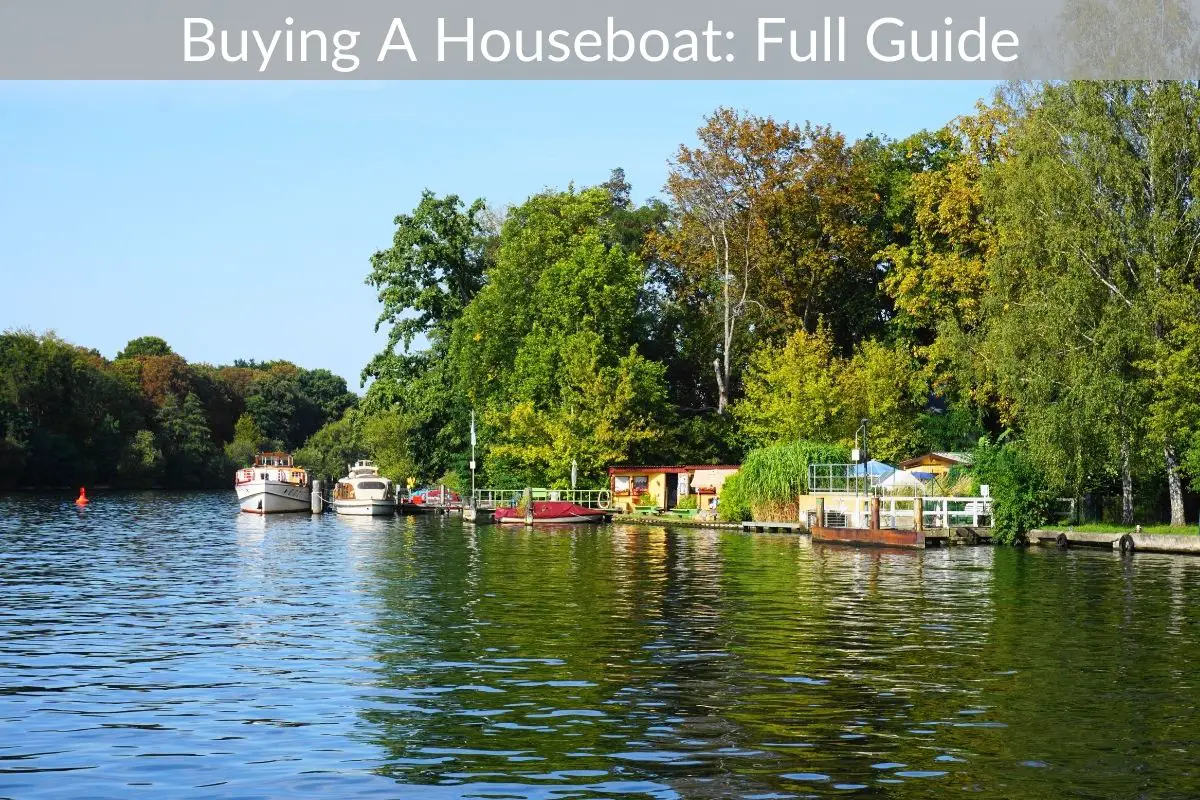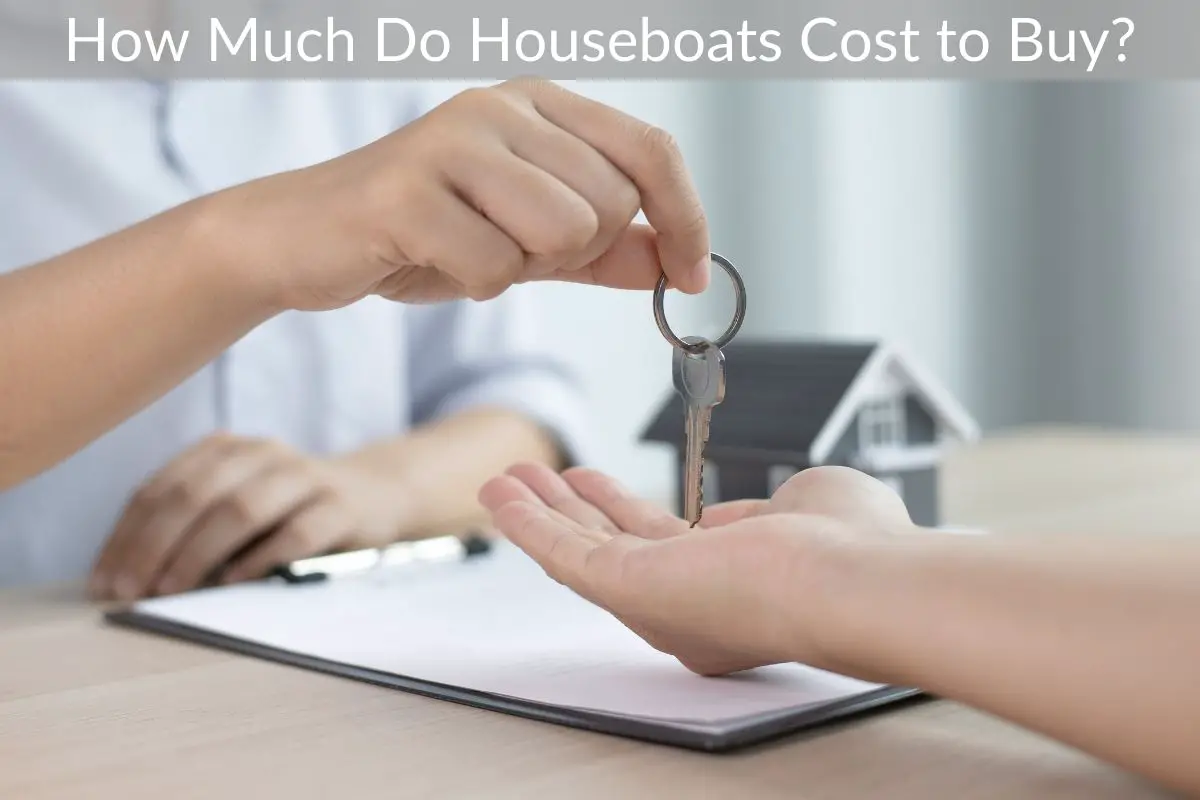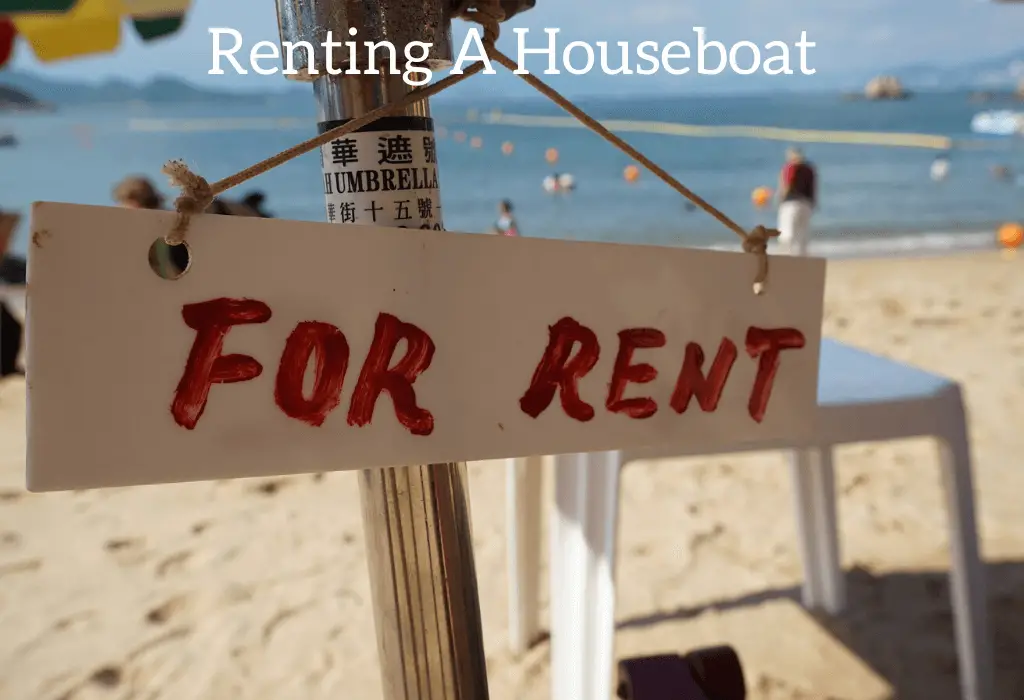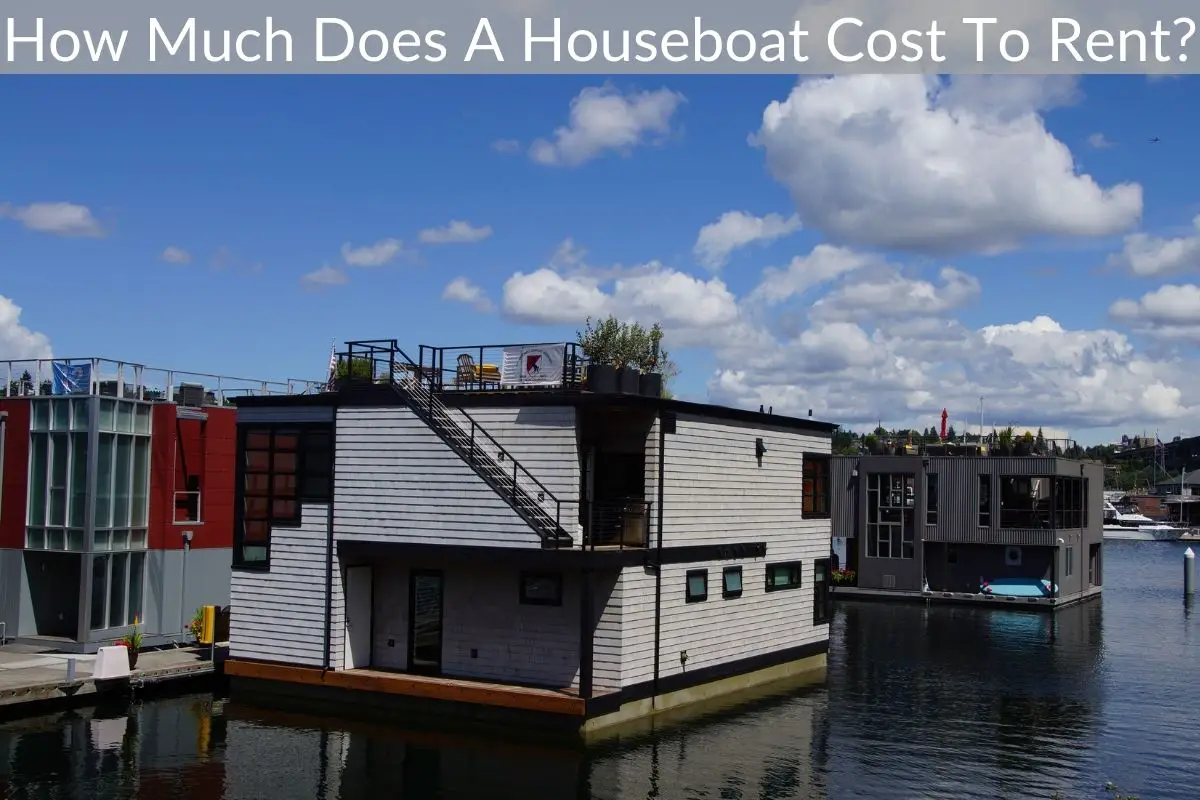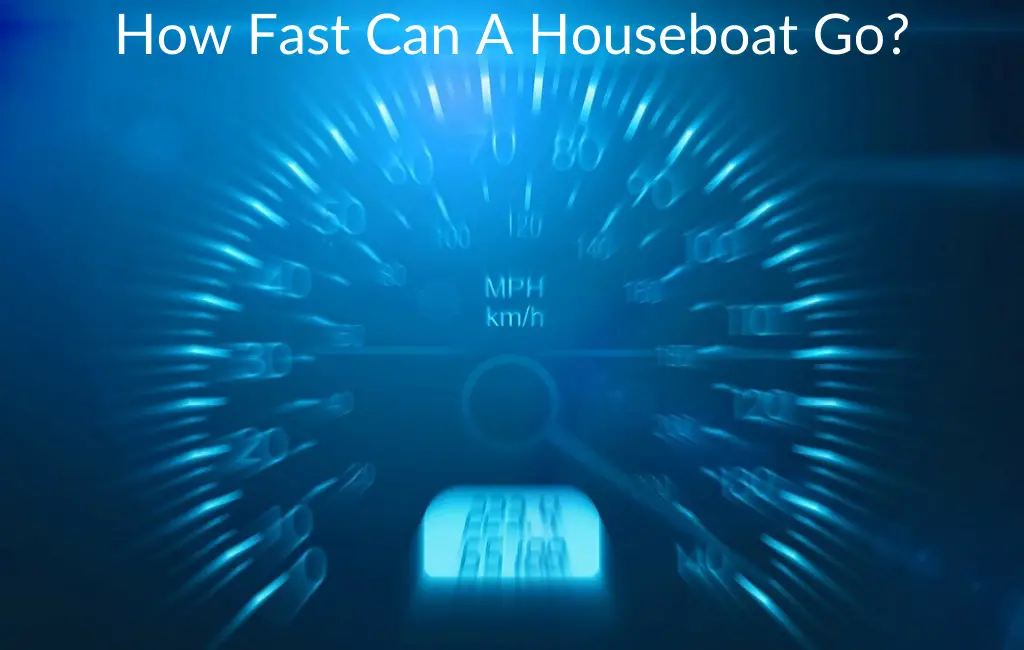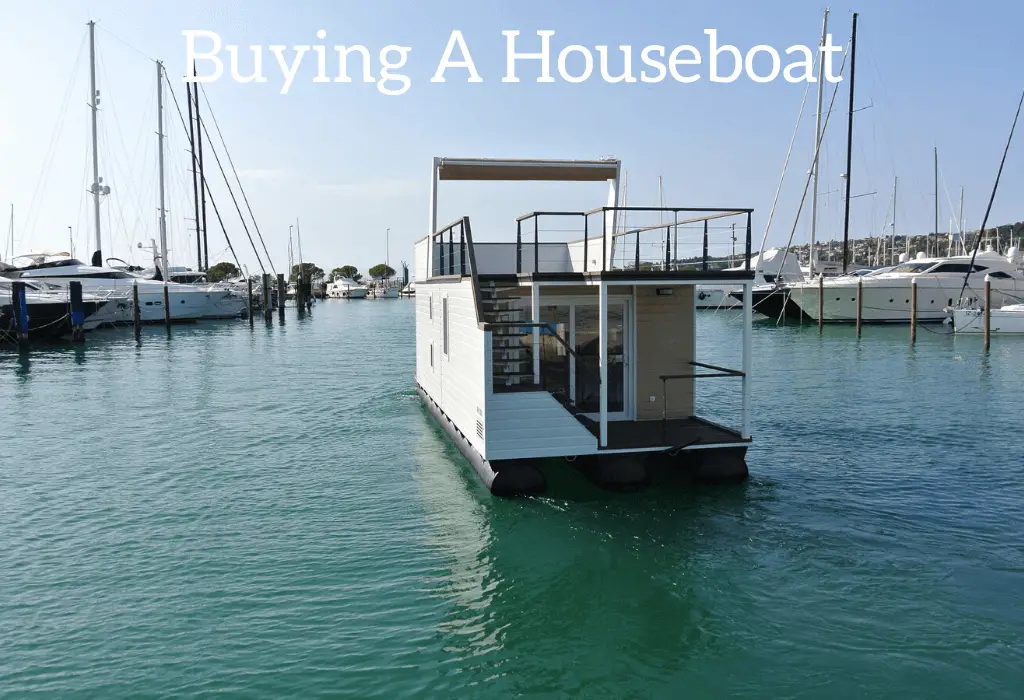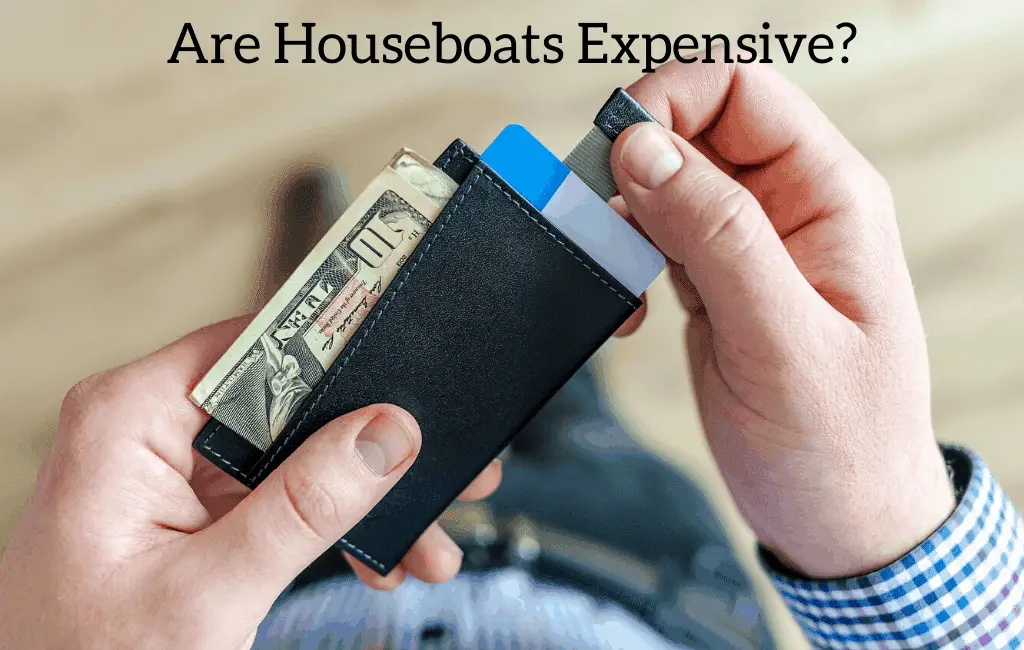Houseboats are specially designed boats which will often be primarily used as a vacation home but there are some people that live on them full time as well. There are a number of variants available on the market with some houseboats being motorized and some not. The non-motorized houseboats are usually moored or they can be kept stationary at a single place.
*This post may contain affiliate links. As an Amazon Associate we earn from qualifying purchases.
In general houseboats demonstrate self-sustaining operation meaning that it is possible for you to live on a houseboat indefinitely if you have the right thing on board. Depending on where in the world you are located, the designs of houseboats differ. A house on a float is basically termed as a Flat House in both America and Canada whereas a rough boat is termed as a shanty boat in those countries.
Houseboats are usually owned privately or are rented by vacationers to use on the amazing rivers or to admire the scenic beauty of a lake. When it comes to houseboats on lakes whether it is your private lake or not will often determine the rules and laws surrounding having a houseboat on it.
Normally houseboats are allowed to be used on any lake or waterway as long as the houseboat is titled properly. If you are putting a houseboat on a smaller lake you will certainly want to make sure that the lake is deep enough to handle the houseboat as well as having a good place to dock or beach it.
The above is true in most places in the United States but it might be different in your state or country so if you have a lake and are unsure of the specific laws where you are at the best thing to do is contact your local representatives and ask.
Every country or state will have a specific agency that is responsible for keeping a check on things like boats and recreation vehicles. That agency will have specific rules that you have to follow as well as give you the details on required permits, title, etc. that your houseboat will need to have.
Guidelines your houseboat needs to follow
There are some specific laws and guidelines that your houseboat will need to follow no matter if they are on your personal lake or a different body of water. Just like you can’t just build any house without following the local building codes you also can’t build or throw up something on the water that isn’t safe.
Some of those guidelines you need to follow are:
- You must be able to provide GFCI protection. For every power source, this must not exceed 100 milliamperes.
- Your houseboat must comply with each and every law that has been mentioned in the local, state and federal laws.
- The houseboat must also comply with the regulations that are required for proper sewage and wastewater discharges.
- When replacing the old floating material, your houseboat must not include un-encased variant of styrofoam.
- You must be prepared to pay an annual fee which depends on the size of the houseboat. The size basically includes the dimensions of its decks, floats and docks.
- Lastly, your design of a houseboat must comply with the proper standards.
Rules and regulations for houseboats
There are a variety of rules and regulations that apply that tend to vary from state to state and also across the international borders. But, some of them are pretty constant in every place and are in place for every houseboat. They are:
- The houseboat must not be driven while intoxicated. Intoxication refers to the intake of drugs and alcohol. If found, severe actions can be taken against the owner or person driving the boat.
- People must refrain from operating an unregistered houseboat. Always make sure that before putting it into operation, your houseboat gets registered by the governing authority.
- Before sunrise and after sunset, you must switch on the necessary boat lights.
- You must never litter the lake, the river or the canal with waste. Your houseboat must be well-equipped with incinerators in order to deal with both sewage and biodegradable waste or tanks to hold the waste until it can be pumped out. Wastes such as cans, plastics must be stored at one place and should be thrown away as soon as you reach the shore.
- You must never use your boat in the prohibited regions of the lake or river. If found to be doing so, the authority has the right to take severe actions against you.
- Onboard, you must be well-equipped with the correct safety gear. This will always include life vests for everyone on board as well as normally flares and other such equipment.
Am I required to take boating safety courses?
This is one of the important things you must do before you decide to get your own houseboat but in many places in the United States it is not required if you are over a certain age. The requirements for these courses vary from state to state so be sure and find out what your state requires if you are in the USA.
Every country offers a number of boating safety courses and these are applicable to every kind of recreational boaters. Boaters of all ages are advised to take these courses before they decide to purchase or rent a houseboat but are not always required. While the majority of the courses are sponsored by the country itself, some are even provided by the state boating agencies.
These courses deal with every aspect that is needed to operate a houseboat. These include learning the aspects of boating safety, learning to handle boats properly, learning to predict the weather conditions, learning how to perfectly handle and master electronic navigation skills and more.
Since there are a lot of courses available, it is generally advised to go for those courses which aim to cover as many aspects of boating as possible. Therefore, we have listed some courses which you can decide on depending on your requirements.
- You can go for a searchable database comprising of safety courses for boating that are prevalent all across the nation.
- You can go for online means of boating safety courses. You can also get an online certificate that is prevalent in a number of states.
- You can go for those sites that offer various resources related to boating education.
- A sailing course which meets the standards of ANS i.e American National Standard can also be undertaken.
- You can also go for those courses that meet the State Boating Education requirements. You will be well-educated on the requirements of being an operator.
- You can go for the courses being offered by the states itself.
- Safety classes that include the basic and the introductory forms of boating technique, how should safety be dealt with, how should one navigate his boat, how should the boat be sailed, what are the various watercraft safety measures, etc must be dealt with.
- You can also opt for sailing programs that mainly includes instructions for small and large variants of sailboats. One can start from a beginner level or end up being quite advanced.
- You can even go for assessment courses that deal with comprehensive resources for finding one’s skills. You can even opt for certificates in various segments like safety and rescue, raft, canoe etc depending on your requirements.
Conclusion
Honestly what you have to do when putting your houseboat on your own lake will vary a lot depending on your location and if you are in the USA or another country.
Therefore, you must go through a variety of hoops and follow the many rules and regulations in order to put your houseboat on your lake. These measures are indeed meant for your safety and therefore, should never be neglected just for convenience.
The best course of action is to contact the local authorities who are in charge of recreational boats and see exactly what you need to do in your locale.


